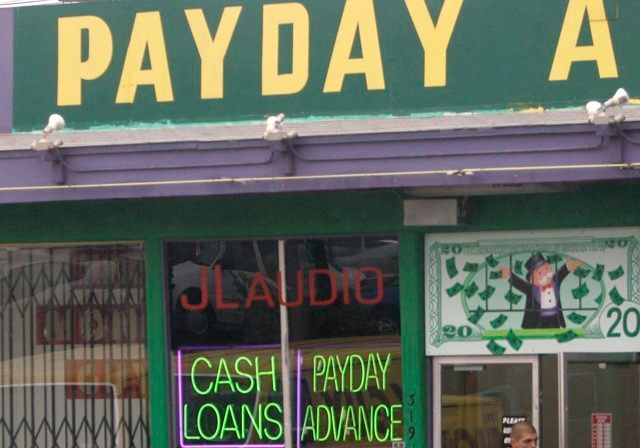Officials with the Consumer Financial Protection Bureau were in regular contact with progressive activists over proposed regulations targeting the payday lending industry, recently released emails reveal.
The communications, which came to light through a Freedom of Information Request, show regulators and activists cooperating for more than a year to draft and fine-tune regulations to tighten the availability of the small consumer loans.
The outside group identified as colluding with the feds, the Center for Responsible Lending (CRL), is a leading progressive activist group that has long targeted the payday lending industry. Founded by donations from Herb and Marian Sandler, pioneers of subprime mortgage lending, CRL has long lobbied for expanding bank lending in underserved areas and increasing regulations on existing financial services companies.
The collusion revealed in the emails went far beyond updates on the status of regulations. As Politico reported:
The emails between CRL and CFPB staffers document regular meetings and close collaboration. In November 2013, as it was researching regulations, CFPB requested data from the nonprofit on payday lenders “to help focus these efforts.” The next month, a staffer for the Center for Responsible Lending requested a copy of the agency’s overdraft analysis “so that CRL could make sure ours was as parallel as possible.”
That spring, David Silberman, associate director for research, markets and regulations at the CFPB, requested an outline on payday lending from CRL President Mike Calhoun. Calhoun replied, “Feel free to improve it!”
Their familiarity grew over the months. “It’s been almost three weeks. Starting to have withdrawal pains,” Silberman wrote in April 2014 as he asked to set up another meeting.
At the same time CFPB was cooperating with CRL on new regulations, the Center for Responsible Lending was spending considerable funds lobbying the very same agency. According to Congressional lobbying disclosures, CRL spent over $250,000 itself in both 2013 and 2014 lobbying Congress and the federal government over these issues.
In addition to its own lobbying, CRL paid outside lobbying firm Pennsylvania Avenue Group almost $100k annually in 2013 and 2014 as well as $40k in 2014 to another firm, Van Scoyoc Associates. During the time that the CFPB was under consideration in Congress, CRL spent millions lobbying the government on crafting the new agency.
Such massive lobbying expenditures are unique for a progressive non-profit advocacy firm. The Center for Responsible Lending is, however, a unique creature of Washington. Its “parent” organization is the Center for Community Self-Help, which itself is the owner of a credit union in North Carolina.
CRL isn’t simply a consumer activist organization, but the policy arm of a nearly billion dollar chain of financial credit unions. Increasing regulations on payday lenders or other financial institutions would necessarily provide a competitive advantage for credit unions and their financial products.
While it is certainly possible that the advocacy done by CRL is incidental to the business interests of its parent credit union, the amount of money the group spends on explicit lobbying raises other possibilities. While non-profits like CRL can certainly engage in minor amounts of lobbying, the funds spent by the organization suggest it is a not insignificant portion of its mission.
Certainly very few public interest non-profits keep outside lobbying firms on permanent retainers.
The disclosures of the emails between CRL and regulators at CFPB, of course, raise a more relevant question: Why does CRL even bother with spending money on lobbying? The organization certainly has the ear of federal regulators. More than that, it looks like it’s guiding the CFPB’s regulatory pen as well.

COMMENTS
Please let us know if you're having issues with commenting.